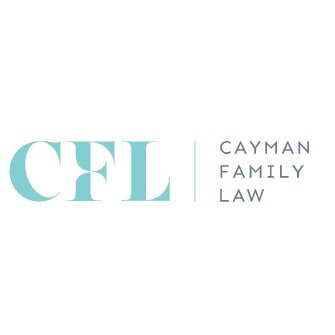Best Collaborative Law Lawyers in George Town
Share your needs with us, get contacted by law firms.
Free. Takes 2 min.
Free Guide to Hiring a Family Lawyer
List of the best lawyers in George Town, Cayman Islands
About Collaborative Law in George Town, Cayman Islands
Collaborative Law in George Town, Cayman Islands is a form of alternative dispute resolution where parties work together with their lawyers to resolve their legal issues outside of court. It is a voluntary process that aims to promote cooperation and transparency in reaching a mutually beneficial agreement.
Why You May Need a Lawyer
You may need a lawyer in Collaborative Law in George Town, Cayman Islands if you are facing a family law issue such as divorce, child custody, or division of assets. A lawyer can help guide you through the collaborative process, protect your rights, and ensure that your interests are represented during negotiations.
Local Laws Overview
In George Town, Cayman Islands, Collaborative Law is governed by the Collaborative Law Practice Act. This legislation outlines the procedures and requirements for parties seeking to resolve their disputes through the collaborative process. It is important to seek legal advice from a knowledgeable lawyer who is familiar with the local laws and procedures.
Frequently Asked Questions
What types of legal issues can be resolved through Collaborative Law?
Collaborative Law can be used to resolve a variety of legal issues, including divorce, child custody, child support, spousal support, and division of assets.
How does Collaborative Law differ from traditional litigation?
Collaborative Law focuses on cooperation and reaching a mutually agreed-upon solution, whereas traditional litigation involves a judge making a decision based on the arguments presented in court.
Is Collaborative Law legally binding?
Yes, any agreements reached through the collaborative process are legally binding once they are signed by both parties and filed with the court.
Do both parties need to hire separate lawyers for Collaborative Law?
Yes, each party must have their own lawyer who is trained in Collaborative Law to represent their interests throughout the process.
How long does Collaborative Law typically take to resolve a legal issue?
The timeline for resolving a legal issue through Collaborative Law can vary depending on the complexity of the case and the willingness of the parties to cooperate. On average, it can take several months to reach a final agreement.
What happens if the collaborative process is unsuccessful?
If the collaborative process is unsuccessful, both parties must hire new lawyers if they choose to proceed with litigation in court.
Are the details of Collaborative Law proceedings confidential?
Yes, Collaborative Law proceedings are confidential, and information shared during the process cannot be used in court if the collaborative process is terminated.
Can I switch from Collaborative Law to traditional litigation if I change my mind?
Yes, you can choose to switch from Collaborative Law to traditional litigation at any time during the process, but you will need to hire new lawyers to represent you in court.
How much does Collaborative Law cost compared to traditional litigation?
Collaborative Law can be more cost-effective than traditional litigation because it typically involves fewer court appearances and less time spent on legal proceedings. However, the cost can vary depending on the complexity of the case and the number of issues that need to be resolved.
What are the benefits of choosing Collaborative Law over traditional litigation?
Some benefits of Collaborative Law include faster resolution of legal issues, lower costs, greater control over the outcome, and the ability to maintain a cooperative relationship with the other party.
Additional Resources
If you are in need of legal advice regarding Collaborative Law in George Town, Cayman Islands, you can contact the Cayman Islands Legal Practitioners Association for a list of qualified lawyers who specialize in Collaborative Law. Additionally, the Cayman Islands Judicial Administration website provides information on the local laws and procedures related to collaborative legal processes.
Next Steps
If you are considering using Collaborative Law to resolve a legal issue in George Town, Cayman Islands, it is important to consult with a qualified lawyer who is experienced in this area of law. Your lawyer can guide you through the collaborative process, ensure that your rights are protected, and help you reach a mutually beneficial agreement with the other party.
Lawzana helps you find the best lawyers and law firms in George Town through a curated and pre-screened list of qualified legal professionals. Our platform offers rankings and detailed profiles of attorneys and law firms, allowing you to compare based on practice areas, including Collaborative Law, experience, and client feedback.
Each profile includes a description of the firm's areas of practice, client reviews, team members and partners, year of establishment, spoken languages, office locations, contact information, social media presence, and any published articles or resources. Most firms on our platform speak English and are experienced in both local and international legal matters.
Get a quote from top-rated law firms in George Town, Cayman Islands — quickly, securely, and without unnecessary hassle.
Disclaimer:
The information provided on this page is for general informational purposes only and does not constitute legal advice. While we strive to ensure the accuracy and relevance of the content, legal information may change over time, and interpretations of the law can vary. You should always consult with a qualified legal professional for advice specific to your situation.
We disclaim all liability for actions taken or not taken based on the content of this page. If you believe any information is incorrect or outdated, please contact us, and we will review and update it where appropriate.












